
Piedras Blancas: Uruguay's Hidden Gem
Nestled in the heart of Uruguay, Piedras Blancas is a charming and serene destination that promises visitors a unique blend of natural beauty and cultural richness. This quaint town, known for its picturesque landscapes, offers an escape from the hustle and bustle of urban life. With its rolling hills, lush greenery, and clear blue skies, Piedras Blancas is a paradise for nature enthusiasts and peace seekers alike. The town's name, which translates to 'White Stones,' is a nod to the distinctive white rocks that dot the landscape, creating a striking contrast against the verdant backdrop. Visitors can explore the numerous hiking trails that wind through the countryside, providing breathtaking views and the chance to encounter local wildlife. The area is also home to several pristine rivers and streams, perfect for a refreshing dip or a leisurely boat ride. Piedras Blancas is not just about nature; it also boasts a rich cultural heritage. The town is dotted with charming colonial-era buildings, quaint cafes, and vibrant markets where you can sample local delicacies and shop for handcrafted souvenirs. The friendly locals are always eager to share stories and traditions, adding a personal touch to your visit. Whether you're looking to relax, explore, or immerse yourself in the local culture, Piedras Blancas has something to offer every traveler.
Local tips in Piedras Blancas
- Visit the local markets early in the morning to experience the freshest produce and vibrant atmosphere.
- Pack comfortable walking shoes for exploring the scenic hiking trails around the town.
- Try the local delicacies at family-owned cafes for an authentic taste of Piedras Blancas.
- Carry a camera to capture the stunning landscapes and unique wildlife.
- Learn a few basic Spanish phrases to enhance your interactions with the friendly locals.
Piedras Blancas: Uruguay's Hidden Gem
Nestled in the heart of Uruguay, Piedras Blancas is a charming and serene destination that promises visitors a unique blend of natural beauty and cultural richness. This quaint town, known for its picturesque landscapes, offers an escape from the hustle and bustle of urban life. With its rolling hills, lush greenery, and clear blue skies, Piedras Blancas is a paradise for nature enthusiasts and peace seekers alike. The town's name, which translates to 'White Stones,' is a nod to the distinctive white rocks that dot the landscape, creating a striking contrast against the verdant backdrop. Visitors can explore the numerous hiking trails that wind through the countryside, providing breathtaking views and the chance to encounter local wildlife. The area is also home to several pristine rivers and streams, perfect for a refreshing dip or a leisurely boat ride. Piedras Blancas is not just about nature; it also boasts a rich cultural heritage. The town is dotted with charming colonial-era buildings, quaint cafes, and vibrant markets where you can sample local delicacies and shop for handcrafted souvenirs. The friendly locals are always eager to share stories and traditions, adding a personal touch to your visit. Whether you're looking to relax, explore, or immerse yourself in the local culture, Piedras Blancas has something to offer every traveler.
When is the best time to go to Piedras Blancas?
Iconic landmarks you can’t miss
Prado Park
Discover the tranquility of Prado Park in Montevideo, a lush urban park filled with beautiful gardens, walking paths, and vibrant nature, perfect for relaxation and exploration.
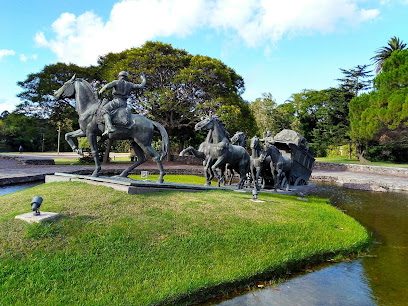
Juan Pedro Fabini Square
Experience the serene beauty of Juan Pedro Fabini Square, a lush urban park in Montevideo perfect for relaxation, picnics, and cultural immersion.
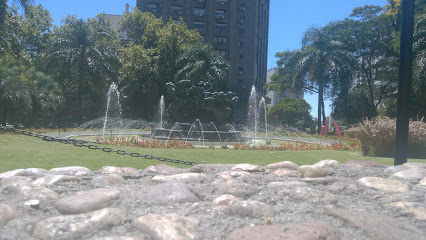
Constitution Plaza
Explore Constitution Plaza in Montevideo, a historical park celebrating Uruguay's rich heritage, offering culture, tranquility, and beautiful scenery.
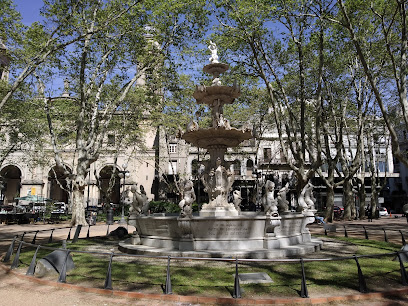
Montevideo Japanese Garden Hei Sei En 平成苑
Discover tranquility at the Montevideo Japanese Garden Hei Sei En, a serene oasis blending Japanese landscaping with the beauty of nature in Montevideo.
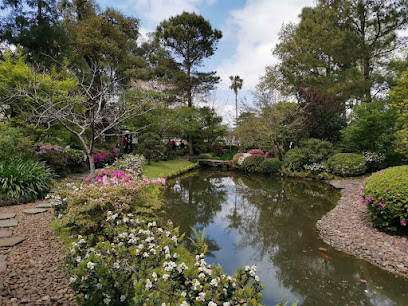
Universo Pittamiglio - Castillo del Alquimista
Explore the enchanting Universo Pittamiglio, a unique castle in Montevideo that blends art, history, and the mystique of alchemy for an unforgettable experience.
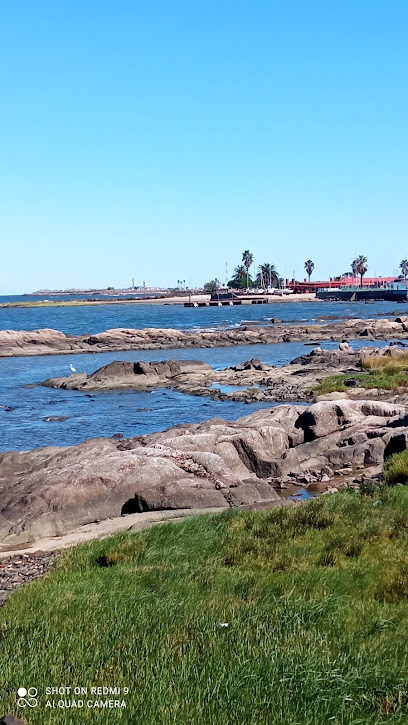
Zabala Square
Discover the serene beauty of Zabala Square, a picturesque park in Montevideo perfect for relaxation, cultural immersion, and enjoying nature's tranquility.
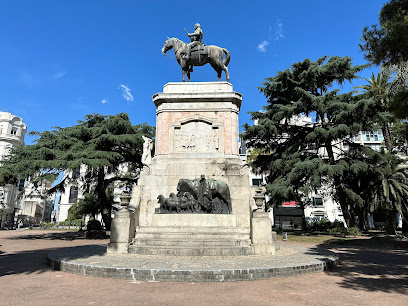
Fountain of the Padlocks
Discover the enchanting Fountain of the Padlocks in Montevideo, a symbol of love and commitment surrounded by vibrant city life.
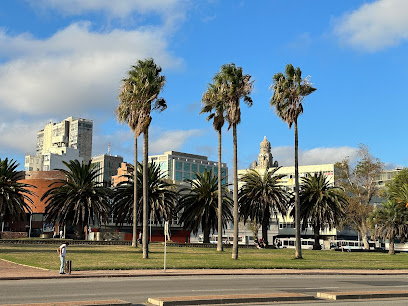
Palacio Salvo
Explore the majestic Palacio Salvo in Montevideo, a historical landmark showcasing stunning architecture and rich cultural heritage.

Gateway of the Citadel
Discover the rich history of Montevideo at the iconic Gateway of the Citadel, a stunning landmark that reflects Uruguay's vibrant culture and heritage.
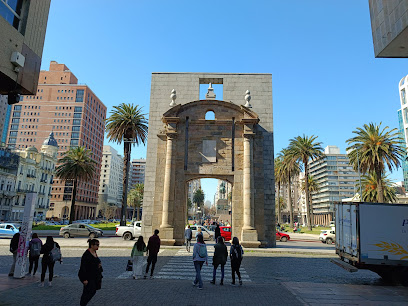
Punta Carretas Lighthouse
Experience stunning ocean views and rich history at Punta Carretas Lighthouse, a must-visit landmark in Montevideo.
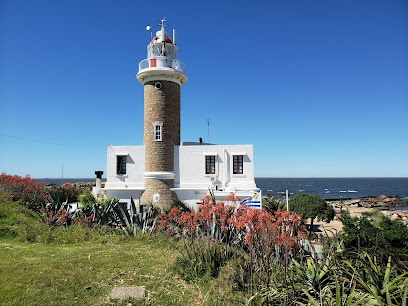
Palacio Taranco
Experience the charm of Palacio Taranco, a historic art museum in Montevideo showcasing exquisite decorative arts and stunning architecture.
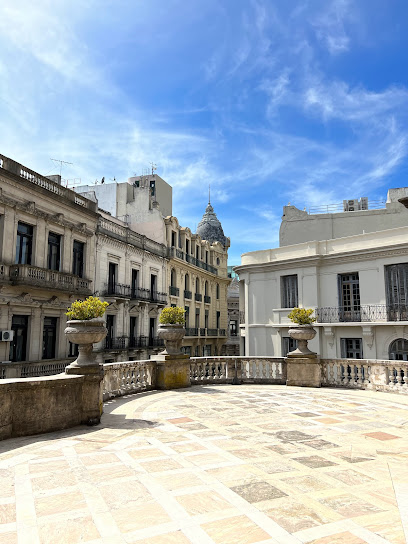
Las Carmelitas
Explore the architectural beauty and cultural richness of Las Carmelitas, a must-visit parish in the heart of Montevideo, Uruguay.
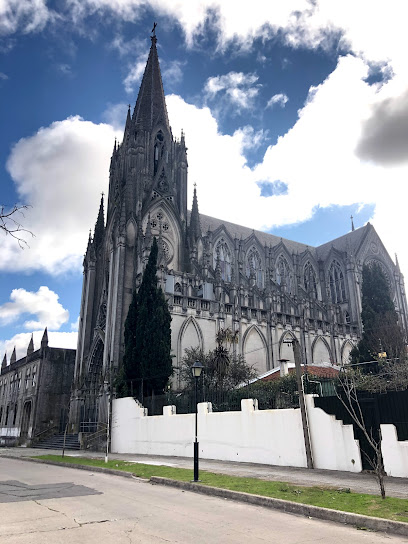
Peatonal Sarandí
Explore the vibrant Peatonal Sarandí in Montevideo, where history, culture, and shopping come together in a picturesque pedestrian paradise.
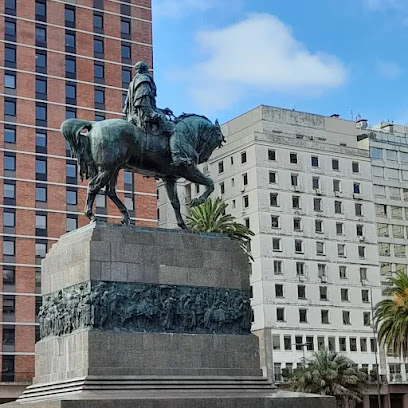
Artigas Mausoleum
Explore the Artigas Mausoleum in Montevideo, a historical landmark honoring Uruguay's founding father, General José Artigas, amidst vibrant city life.

Gran Logia de la Masonería del Uruguay
Discover the rich history and architectural beauty of the Grand Lodge of Freemasonry of Uruguay, a cultural treasure in Montevideo.
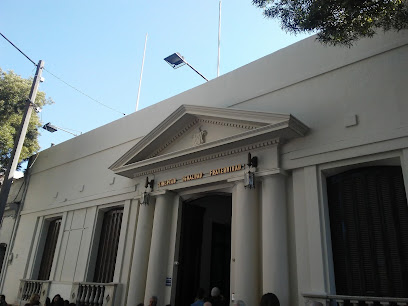
Unmissable attractions to see
Museo Juan Manuel Blanes
Discover the artistic legacy of Uruguay at Museo Juan Manuel Blanes, where captivating paintings and cultural heritage come alive in Montevideo's vibrant art scene.
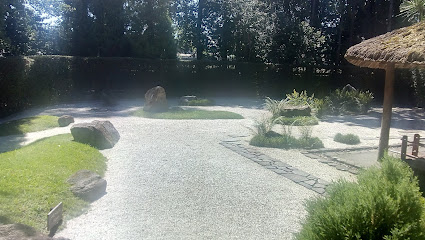
El Rosedal
Discover the enchanting beauty of El Rosedal, a stunning park in Montevideo filled with vibrant roses, serene lakes, and lush landscapes.
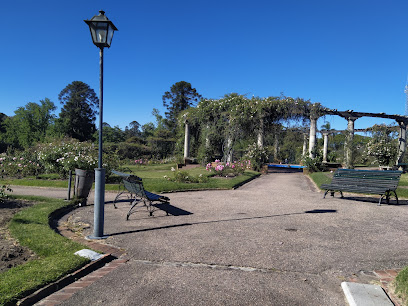
Molino de Pérez
Experience the historical beauty of Molino de Pérez, a captivating tourist attraction in Montevideo, showcasing the city's rich culture and serene landscapes.
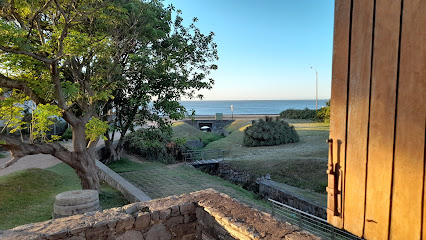
Espacio Ciencia
Discover the interactive world of science at Espacio Ciencia, Montevideo's premier science museum, perfect for curious minds and families.
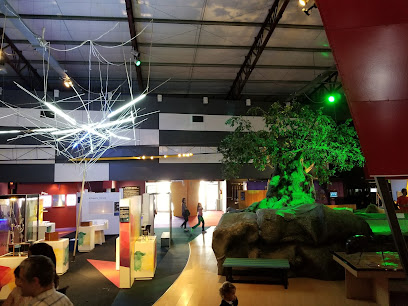
Museo de la Memoria
Explore the poignant history of Uruguay through powerful exhibits at Museo de la Memoria, a local history museum in Montevideo.
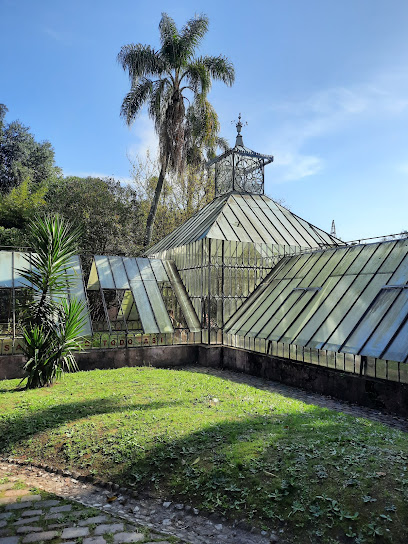
Parque Baroffio
Explore the serene Parque Baroffio in Montevideo, a tranquil park perfect for relaxation, nature walks, and cultural experiences.
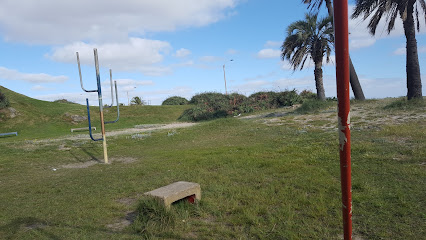
Lago del Prado
Discover the tranquility of Lago del Prado, Montevideo's stunning park with a serene lake, lush gardens, and endless recreational opportunities.
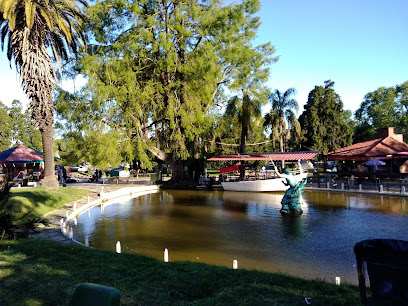
Museo Y Parque Fernando Garcia
Explore the cultural and natural beauty of Museo Y Parque Fernando Garcia in Montevideo, a perfect blend of history and tranquility.
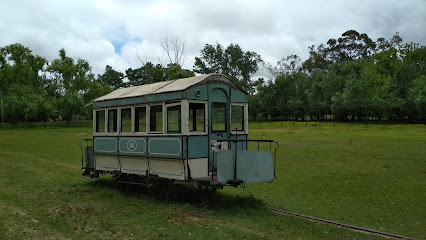
Jardin Botanico Fountain
Experience the tranquility and natural beauty of Jardin Botanico Fountain, a must-visit botanical garden in Montevideo, Uruguay.
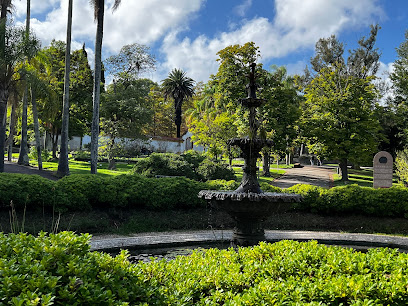
Fuente Iluminada
Discover the mesmerizing Fuente Iluminada in Montevideo, a stunning illuminated fountain and cultural landmark offering vibrant light shows and serene surroundings.
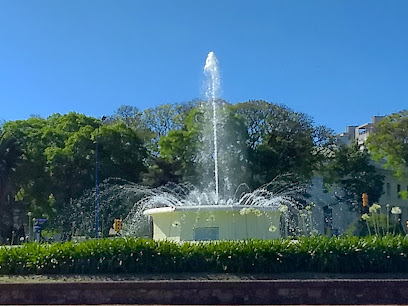
Museo Nacional De Antropología
Explore the rich cultural heritage of Uruguay at the Museo Nacional De Antropología, home to ancient artifacts and captivating exhibits.
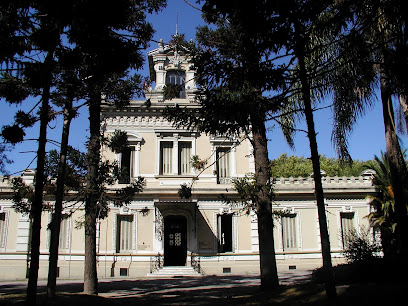
Artigas Blandengues Museum
Explore Uruguay's military history at the Artigas Blandengues Museum in Montevideo, where the past comes alive through captivating exhibits and stories.
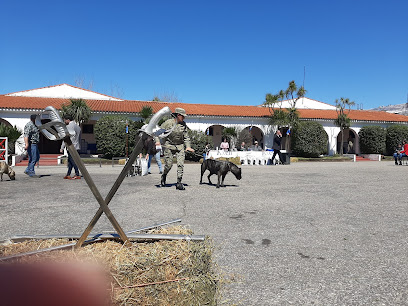
Museo del Azulejo
Explore the rich cultural heritage of Uruguay at Museo del Azulejo in Montevideo, showcasing stunning decorative tiles and their historical significance.
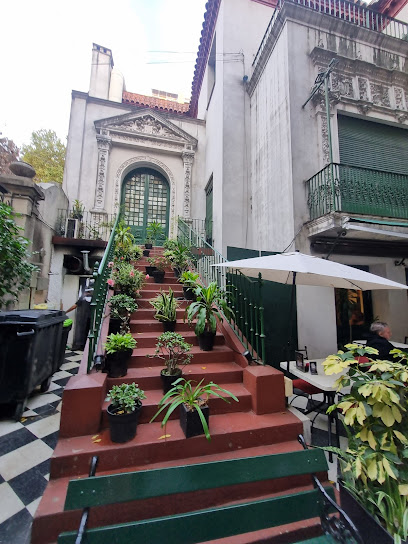
Museo Quinta Vaz Ferreira
Explore the artistic heritage of Uruguay at Museo Quinta Vaz Ferreira, a charming museum in Montevideo showcasing a rich collection of local and international art.
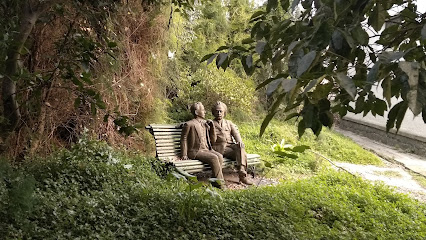
Bodega Angel Fallabrino
Experience the best of Uruguayan wine at Bodega Angel Fallabrino, where tradition meets innovation in a stunning vineyard setting.
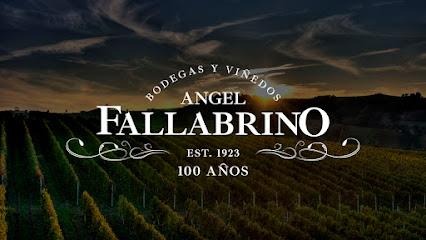
Essential places to dine
Pizzería Mediterránea
Discover Pizzería Mediterránea: A delightful pizza haven in Montevideo offering authentic Italian flavors in a cozy setting.
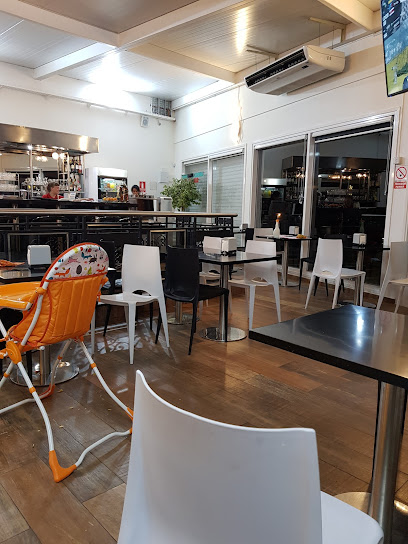
La Siciliana - Pizzería
Experience authentic Italian cuisine at La Siciliana Pizzería in Montevideo, where every slice tells a story of flavor and tradition.
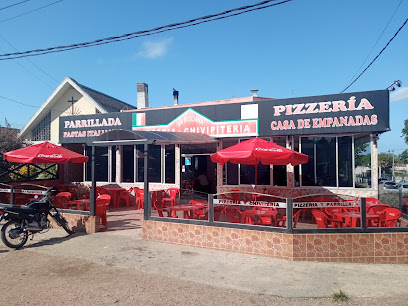
La Peña Parrilla
Discover authentic Uruguayan grill cuisine at La Peña Parrilla in Montevideo—where every meal tells a story of tradition and flavor.
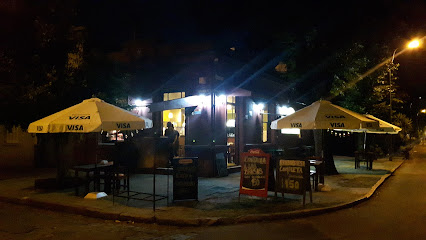
Cabaña Veronica
Discover authentic Uruguayan flavors at Cabaña Veronica in Montevideo's lively Mercado del Puerto.
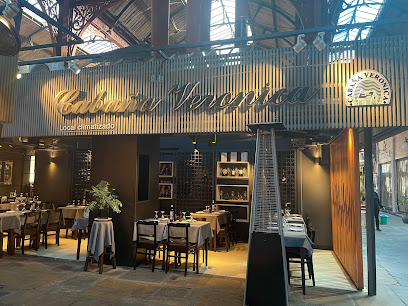
El Carrito De Jorge
Discover El Carrito De Jorge in Montevideo: Fast food with local flavors that captures the spirit of Uruguay's culinary scene.
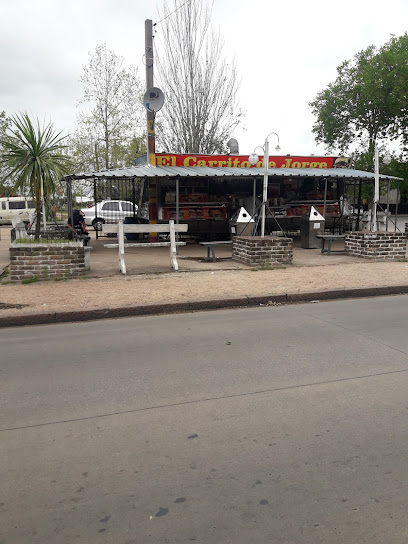
Orange Truck
Discover Orange Truck in Montevideo: Where fast food meets flavor in an inviting atmosphere perfect for every traveler.

El Grill de Eduardo
Experience the essence of Uruguayan fast food at El Grill de Eduardo – where every bite tells a story.
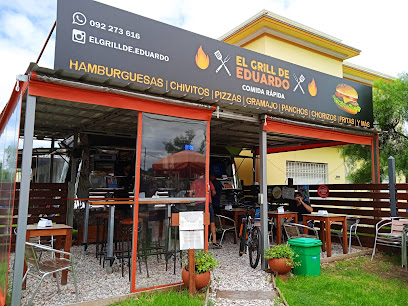
Pizzalamona
Discover Pizzalamona in Montevideo for an authentic taste of Uruguay with mouthwatering pizzas made from fresh local ingredients.
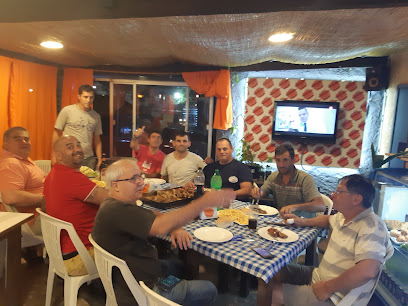
Pizzeria la ruta
Experience authentic Italian pizza at Pizzeria la ruta in Montevideo – where tradition meets local flavor for an unforgettable dining experience.
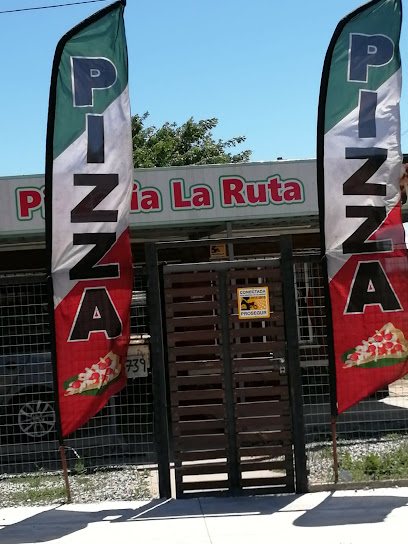
Pizzeria Piria
Discover Pizzeria Piria in Montevideo: Enjoy delicious pizzas in a lively atmosphere perfect for late-night cravings.
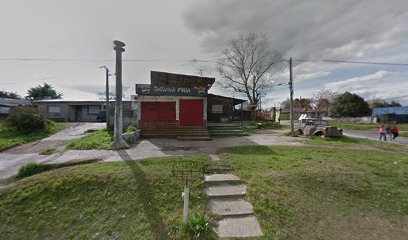
La Pinguita Resto
Discover authentic Uruguayan cuisine at La Pinguita Resto, where every dish tells a story of local flavors in the heart of Montevideo.
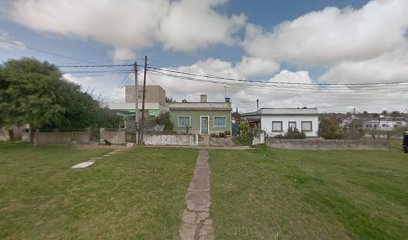
Kami Sushi - Manga
Experience delightful sushi creations at Kami Sushi - Manga in Montevideo – where fresh ingredients meet fast food convenience.
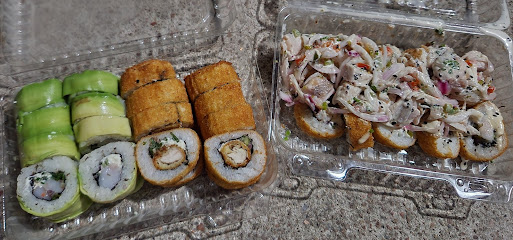
Iberia
Discover authentic Uruguayan cuisine at Iberia in Montevideo - where every meal tells a story.
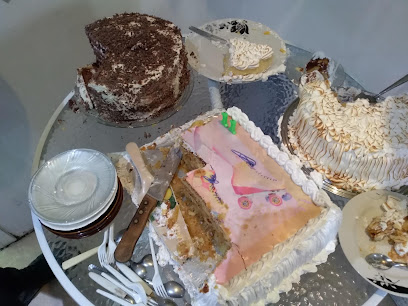
Pizzería LA ESTACIÓN
Experience delicious Italian cuisine at Pizzería LA ESTACIÓN - where every pizza is crafted with passion in Montevideo.
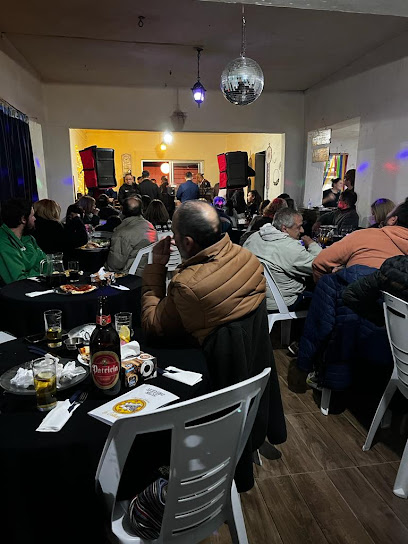
El Bunker
Discover El Bunker in Montevideo – where gourmet hamburgers meet vibrant atmosphere for an unforgettable dining experience.

Markets, malls and hidden boutiques
Paseo Piedras Blancas
Explore the heart of Montevideo at Paseo Piedras Blancas, a vibrant shopping mall featuring diverse shops, delicious dining, and lively entertainment.
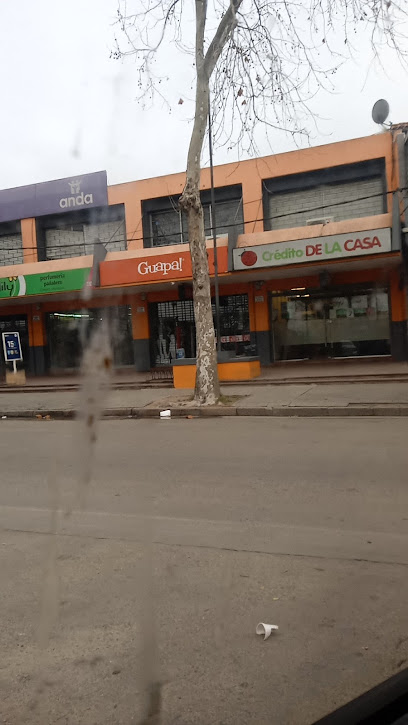
EL Rincón de tu Bebé
Explore the charm of El Rincón de tu Bebé in Montevideo, where stylish baby clothing meets exceptional quality and customer service.
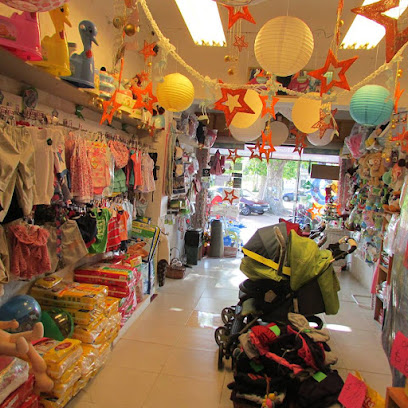
Salon Laura
Explore Salon Laura: Montevideo's charming gift shop offering unique artisanal treasures and souvenirs that celebrate Uruguayan culture.
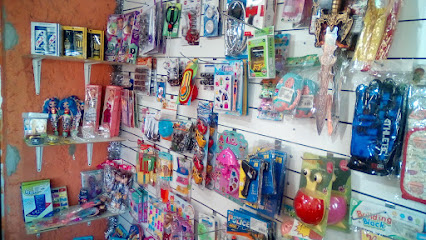
Tienda Alicia
Discover unique fashion at Tienda Alicia in Montevideo, where local style meets elegance and quality in a vibrant shopping experience.
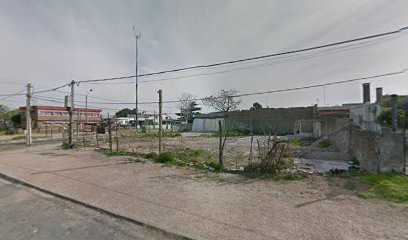
Tienda Fatal
Explore Tienda Fatal in Montevideo for a unique clothing shopping experience that blends local creativity with style.
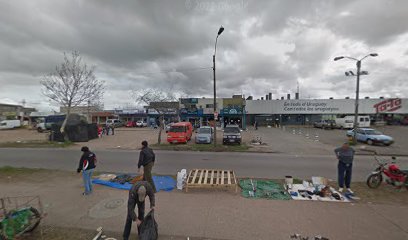
Descuentos
Discover trendy fashion at Descuentos, a must-visit clothing store in Montevideo, blending style and affordability in every piece.
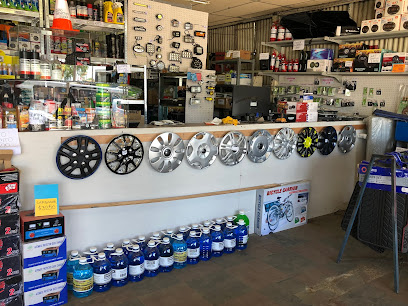
El Ricky soy yo
Explore the latest electronics at El Ricky soy yo in Montevideo, where technology meets exceptional service for every gadget enthusiast.
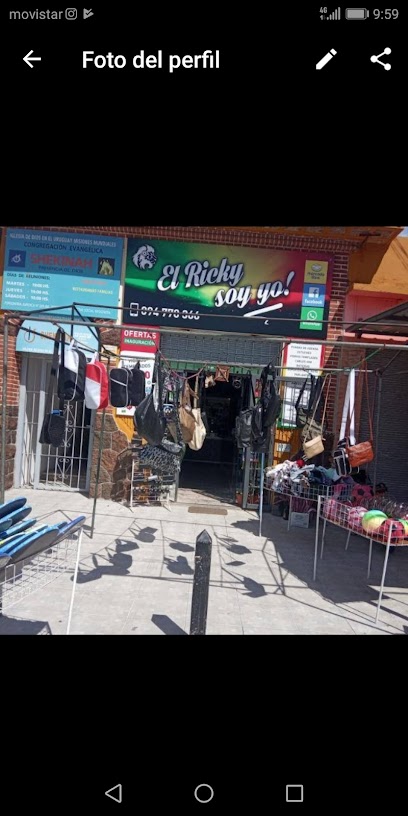
Gangas
Explore Gangas in Montevideo for an exceptional shopping experience, blending style, quality, and affordability in every piece.
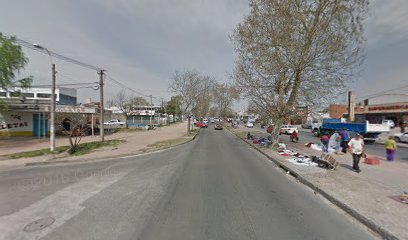
Mimosos tienda
Discover unique Uruguayan fashion at Mimosos Tienda in Montevideo, where local craftsmanship meets stylish design.
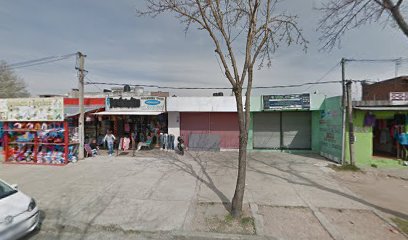
Finisterre
Explore Finisterre in Montevideo – your go-to general store for authentic Uruguayan products and unforgettable souvenirs.
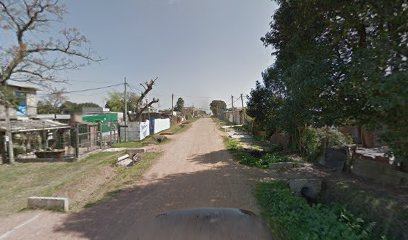
Artemisa_1989
Discover a serene oasis in Montevideo at Artemisa 1989, your destination for authentic Buddhist supplies and spiritual treasures.
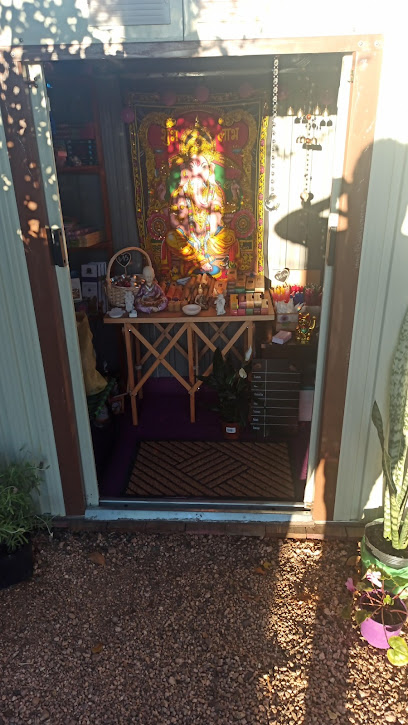
TRUE - QUE
Explore TRUE - QUE in Montevideo for unbeatable deals on top brands, blending quality and style in a vibrant outlet shopping experience.

SECRETOS LENCERIA Y ACCESORIOS
Explore the vibrant world of lingerie at Secretos Lenceria y Accesorios, Montevideo's premier adult entertainment store offering unique gifts and experiences.
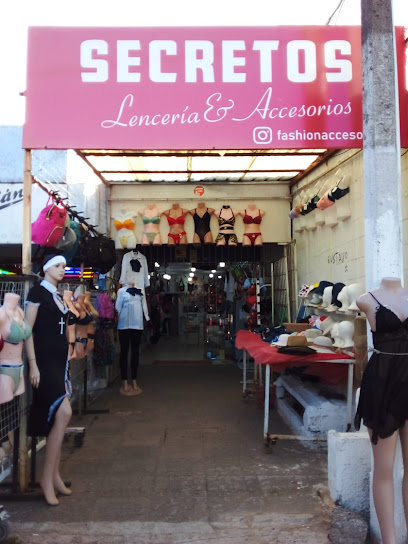
Pilcha's Boutique
Explore Pilcha's Boutique in Montevideo for stylish and unique clothing that reflects Uruguayan culture and craftsmanship, perfect for every fashion enthusiast.
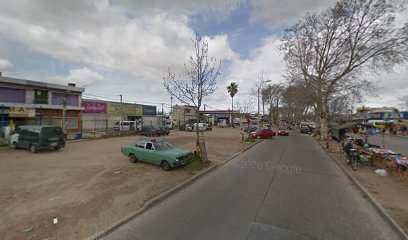
EL MERCADITO (TODO EN UN SOLO LUGAR)
Discover the essence of Montevideo at El Mercadito, your ultimate general store for local crafts and gourmet treats.
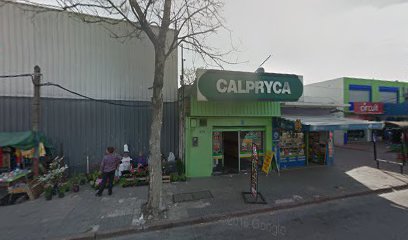
Essential bars & hidden hideouts
Baar Fun Fun
Experience the vibrant nightlife at Baar Fun Fun, a must-visit bar in Montevideo offering eclectic drinks and live music.
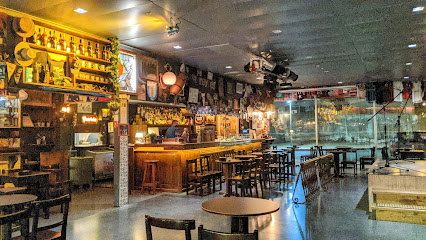
El Viejo Pool
Experience the vibrant nightlife at El Viejo Pool, a lively bar in Montevideo offering local drinks, great ambiance, and friendly service.
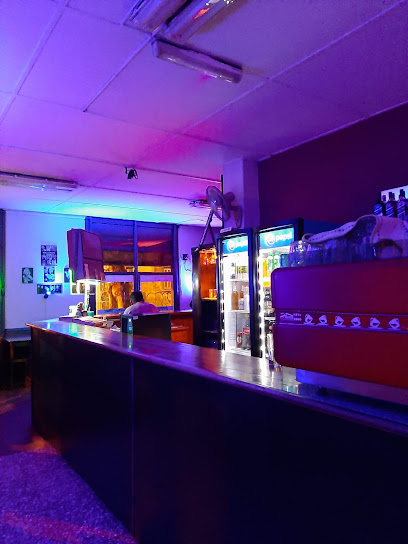
bar el nuevo molinillo
Experience the lively spirit of Montevideo at Bar El Nuevo Molinillo, where local flavors and vibrant nightlife come together.
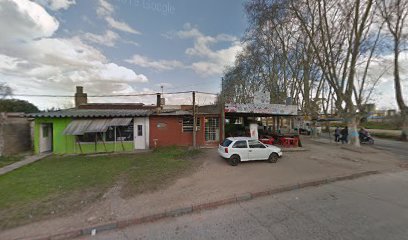
Bar Y Parrillada Ottonello
Savor the authentic taste of Uruguayan parrillada at Bar Y Parrillada Ottonello in Montevideo, where every meal is a celebration of local flavors.

Bar Zeppelin
Experience the vibrant nightlife at Bar Zeppelin, Montevideo's trendy bar offering diverse drinks and a lively atmosphere for an unforgettable night.
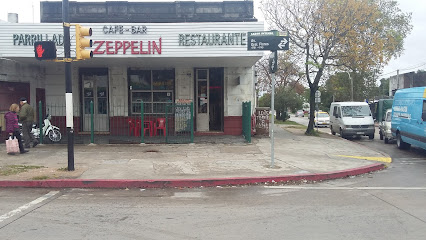
Bar Asturias
Experience the vibrant atmosphere and unique flavors of Uruguay at Bar Asturias, Montevideo's quintessential bar for locals and tourists alike.
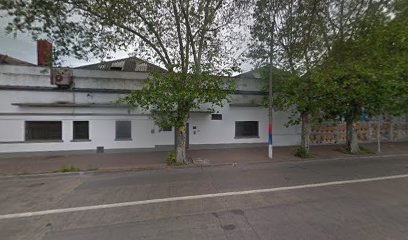
BAR CHAMIZO
Experience the vibrant grill culture of Montevideo at Bar Chamizo, where delicious flavors and lively ambiance come together.
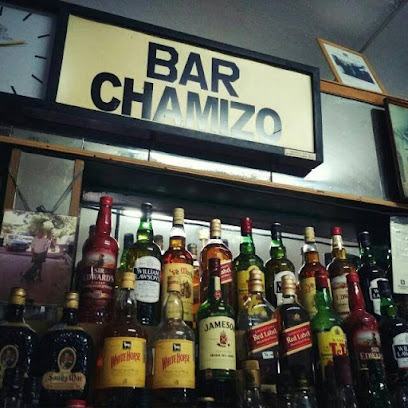
Bar Genoves
Experience the vibrant nightlife of Montevideo at Bar Genoves, where delightful drinks and local culture come together for an unforgettable evening.
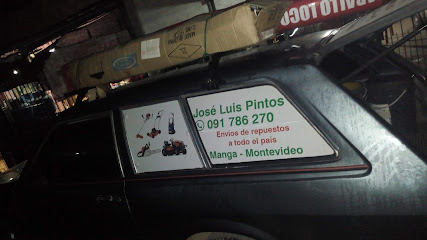
El Bunker
Discover El Bunker in Montevideo for gourmet burgers and a vibrant atmosphere that makes every meal unforgettable.

Fussion cook
Experience the fusion of local flavors and innovative cuisine at Fussion Cook in Montevideo, a culinary destination for every food lover.

Hamburguesas BUNNY BURGUER
Discover the ultimate burger experience at Hamburguesas BUNNY BURGUER in Montevideo – where flavor meets fun!
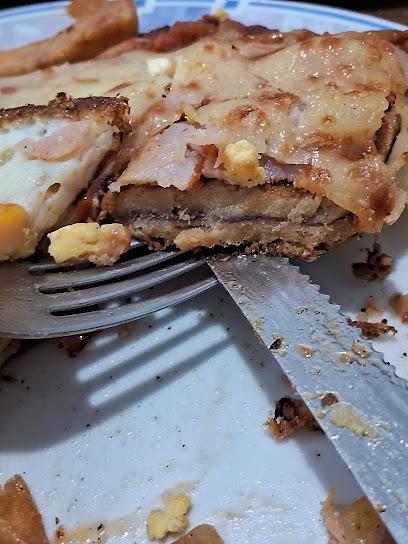
Bar barboza
Discover the vibrant atmosphere of Bar Barboza in Montevideo, where local charm meets unforgettable nightlife and exquisite drinks.
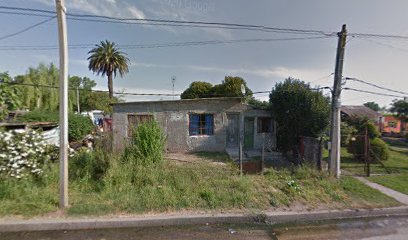
Poliflox Porton Verde
Discover the flavors of Montevideo at Poliflox Porton Verde, where culinary artistry meets local tradition in a welcoming atmosphere.
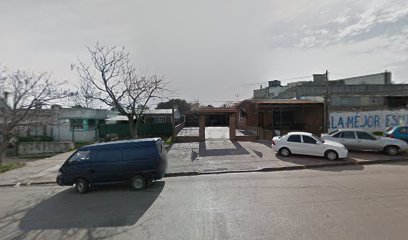
La Esquinita de María
Experience the authentic flavors of Uruguayan cuisine at La Esquinita de María in Montevideo, where every dish tells a story.
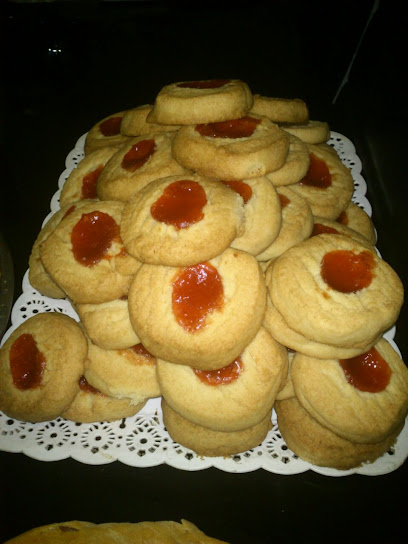
Local Phrases about Piedras Blancas
-
- HelloHola
[oh-la] - GoodbyeAdiós
[ah-dyohs] - YesSí
[see] - NoNo
[noh] - Please/You're welcomePor favor/De nada
[por fah-vor/deh nah-dah] - Thank youGracias
[grah-syahs] - Excuse me/SorryDisculpe/Perdón
[dees-kool-peh/pehr-dohn] - How are you?¿Cómo estás?
[koh-moh ehs-tahs] - Fine. And you?Bien. ¿Y tú?
[byen. ee too] - Do you speak English?¿Hablas inglés?
[ah-blahs een-glehs] - I don't understandNo entiendo
[noh ehn-tyen-doh]
- HelloHola
-
- I'd like to see the menu, pleaseMe gustaría ver el menú, por favor
[meh goos-tah-ree-ah behr ehl meh-noo, por fah-vor] - I don't eat meatNo como carne
[noh koh-moh kahr-neh] - Cheers!¡Salud!
[sah-lood] - I would like to pay, pleaseQuisiera pagar, por favor
[kee-see-eh-rah pah-gahr, por fah-vor]
- I'd like to see the menu, pleaseMe gustaría ver el menú, por favor
-
- Help!¡Ayuda!
[ah-yoo-dah] - Go away!¡Vete!
[veh-teh] - Call the Police!¡Llama a la policía!
[yah-mah ah lah poh-lee-see-ah] - Call a doctor!¡Llama a un doctor!
[yah-mah ah oon dohk-tohr] - I'm lostEstoy perdido
[ehs-toy pehr-dee-doh] - I'm illEstoy enfermo
[ehs-toy ehn-fehr-moh]
- Help!¡Ayuda!
-
- I'd like to buy...Me gustaría comprar...
[meh goos-tah-ree-ah kohm-prahr...] - I'm just lookingSolo estoy mirando
[soh-loh ehs-toy mee-rahn-doh] - How much is it?¿Cuánto cuesta?
[kwan-toh kwes-tah] - That's too expensiveEs demasiado caro
[ehs deh-mah-syah-doh kahr-oh] - Can you lower the price?¿Puedes bajar el precio?
[pweh-dehs bah-hahr ehl pree-syoh]
- I'd like to buy...Me gustaría comprar...
-
- What time is it?¿Qué hora es?
[keh oh-rah ehs] - It's one o'clockEs la una en punto
[ehs lah oo-nah ehn poon-toh] - Half past (10)Media hora (10)
[meh-dyah oh-rah (diez)] - MorningMañana
[mah-nyah-nah] - AfternoonTarde
[tahr-deh] - EveningNoche
[noh-cheh] - YesterdayAyer
[ah-yehr] - TodayHoy
[oy] - TomorrowMañana
[mah-nyah-nah] - 1Uno
[oo-noh] - 2Dos
[dohs] - 3Tres
[trehs] - 4Cuatro
[kwah-troh] - 5Cinco
[seen-koh] - 6Seis
[seys] - 7Siete
[syeh-teh] - 8Ocho
[oh-choh] - 9Nueve
[nweh-veh] - 10Diez
[dyehs]
- What time is it?¿Qué hora es?
-
- Where's a/the...?¿Dónde está...?
[dohn-deh ehs-tah] - What's the address?¿Cuál es la dirección?
[kwal ehs lah dee-rehk-syon] - Can you show me (on the map)?¿Puedes mostrarme (en el mapa)?
[pweh-dehs mohs-trar-meh (ehn ehl mah-pah)] - When's the next (bus)?¿Cuándo es el próximo (ómnibus)?
[kwan-doh ehs ehl proh-ksee-moh (om-nee-boos)] - A ticket (to ....)Un boleto (para ....)
[oon boh-leh-toh (pah-rah)]
- Where's a/the...?¿Dónde está...?
History of Piedras Blancas
-
Before the arrival of European settlers, the region of Piedras Blancas was home to indigenous groups such as the Charrúa people. These indigenous communities thrived on the fertile lands, engaging in hunting, fishing, and primitive agriculture. Their culture and traditions have left an indelible mark on the area, with archaeological sites and artifacts providing a glimpse into their way of life.
-
In the early 18th century, Spanish colonists began to establish settlements in the region, attracted by its strategic location and natural resources. Piedras Blancas became a focal point for agricultural development, with vast estancias (ranches) being established to cultivate crops and raise livestock. The colonial architecture from this period still stands as a testament to the area’s historical significance.
-
During the 19th century, Uruguay was embroiled in a series of civil wars and conflicts, known as the 'Guerra Grande' and other internal struggles. Piedras Blancas played a significant role as a strategic point for both sides due to its geographic location. Several skirmishes and battles took place in the vicinity, leaving behind a legacy of resilience and fortitude.
-
The 20th century brought significant economic development to Piedras Blancas. The establishment of railways and improved infrastructure boosted the area's agricultural output and facilitated trade. The region became known for its production of grains, dairy, and meat, contributing to Uruguay's economic growth. Industrial advancements also led to the emergence of local industries, further enhancing the area's prosperity.
-
In recent decades, Piedras Blancas has seen a cultural renaissance. The blending of indigenous traditions, colonial heritage, and modern influences has created a unique cultural tapestry. Festivals, arts, and culinary traditions reflect this rich diversity. The area has also embraced tourism, showcasing its historical landmarks, natural beauty, and vibrant community life to visitors from around the world.
Piedras Blancas Essentials
-
Piedras Blancas is a neighborhood in Montevideo, Uruguay. The nearest international airport is Carrasco International Airport, located about 20 kilometers from Piedras Blancas. You can take a taxi or a shuttle service from the airport to Piedras Blancas, which typically takes around 30 minutes by road. Alternatively, you can use public transportation, such as buses, which are available from the airport to various parts of Montevideo, including Piedras Blancas.
-
Within Piedras Blancas, public buses are the most common form of transportation and are both frequent and affordable. Taxis and ride-sharing services like Uber are also readily available. For those who prefer to explore at their own pace, renting a car is an option, though parking can sometimes be challenging in busier areas. Bicycles can also be rented for a more eco-friendly way to see the neighborhood.
-
The official currency in Uruguay is the Uruguayan Peso (UYU). Credit and debit cards are widely accepted in most restaurants, shops, and hotels in Piedras Blancas. However, it's a good idea to carry some cash for smaller establishments and street vendors that may not accept cards. ATMs are available throughout the area for cash withdrawals.
-
Piedras Blancas is generally safe for tourists, but like any urban area, it's important to stay vigilant. Avoid displaying valuable items in public and be cautious when using ATMs, especially at night. Certain areas may have higher crime rates, so it's advisable to ask locals or your accommodation about any areas to avoid. Stick to well-lit and busy areas, particularly after dark.
-
In case of emergency, dial 911 for immediate assistance. Piedras Blancas has local police stations and medical facilities available. It is highly recommended to have travel insurance that covers medical emergencies. For minor health issues, you can find pharmacies in the neighborhood where over-the-counter medications are available.
-
Fashion: Do dress comfortably and casually, but avoid overly revealing clothing, especially in religious or conservative areas. Religion: Do respect local customs and traditions. When visiting religious sites, dress modestly and follow any specific guidelines posted. Public Transport: Do be respectful and give up your seat to elderly passengers or pregnant women. Don't eat or drink on public transport. Greetings: Do greet people with a friendly 'Hola' or a handshake. A kiss on the cheek is also common among friends and acquaintances. Eating & Drinking: Do try local dishes and be open to new culinary experiences. Don't refuse an offer of mate, a traditional Uruguayan drink, as it is a sign of hospitality.
-
To experience Piedras Blancas like a local, visit the neighborhood's markets and try traditional Uruguayan foods like empanadas and chivito. Engage with locals, who are often friendly and willing to share insights about their community. Don’t miss out on visiting local parks and cultural centers to immerse yourself in the local lifestyle. If you have the chance, attend a football match to experience the local passion for the sport.
Trending Landmarks in Piedras Blancas
-
Prado Park
-
Juan Pedro Fabini Square
-
Constitution Plaza
-
Montevideo Japanese Garden Hei Sei En 平成苑
-
Universo Pittamiglio - Castillo del Alquimista
-
Zabala Square
-
Fountain of the Padlocks
-
Palacio Salvo
-
Gateway of the Citadel
-
Punta Carretas Lighthouse
-
Palacio Taranco
-
Las Carmelitas
-
Peatonal Sarandí
-
Artigas Mausoleum
-
Gran Logia de la Masonería del Uruguay
Nearby Cities to Piedras Blancas
-
Things To Do in Maldonado
-
Things To Do in Punta del Este
-
Things To Do in Colonia del Sacramento
-
Things To Do in La Plata
-
Things To Do in Buenos Aires
-
Things To Do in Fray Bentos
-
Things To Do in Tacuarembó
-
Things To Do in Mar del Plata
-
Things To Do in Rosario
-
Things To Do in Encarnacion
-
Things To Do in Córdoba
-
Things To Do in Carmen del Parana
-
Things To Do in Villarrica
-
Things To Do in Puerto Iguazú
-
Things To Do in Foz do Iguaçu







